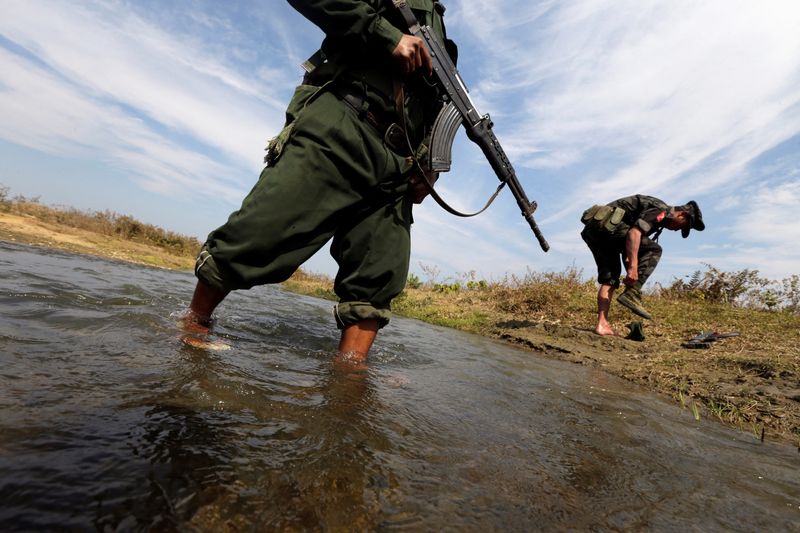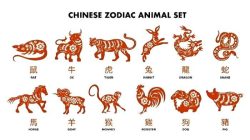The Struggle for Bhamo and the Global Supply of Rare Earths
The global supply of heavy rare earths is increasingly tied to the ongoing conflict in northern Myanmar, where a rebel army known as the Kachin Independence Army (KIA) has been engaged in a months-long battle with the military junta. This conflict centers around the town of Bhamo, which lies less than 100 km from the Chinese border and is strategically significant due to its proximity to key mineral resources.
Strategic Importance of Kachin State
Nearly half of the world’s supply of heavy rare earths is extracted from mines in Kachin state, including those north of Bhamo. These minerals are essential for manufacturing magnets used in electric vehicles and wind turbines. Once mined, they are typically shipped to China for processing, where the country holds a near-monopoly on refining these materials.
China has reportedly threatened to stop purchasing rare earths from KIA-controlled areas unless the militia ceases its efforts to take full control of Bhamo. This ultimatum highlights how Beijing is leveraging its economic influence to shape the geopolitical landscape in the region.
Geopolitical Implications
According to sources familiar with the matter, the KIA was approached by Chinese officials in May during discussions that have not been widely reported. One KIA official mentioned that the talks were led by representatives from the Chinese foreign ministry. While it remains unclear if China has acted on its threat, the fighting in the region has already disrupted mining operations and significantly reduced rare-earth exports from Myanmar this year.
This situation underscores China’s broader strategy of using its economic power to support its interests in Myanmar. The country has historically maintained strong ties with the military junta, viewing it as a stabilizing force in its backyard. In recent years, China has also sought to bolster the junta by providing military equipment, including jets and drones.
Economic Leverage and Cross-Border Trade
In addition to its threats, China has offered incentives to the KIA, such as increased cross-border trade with territories under its control, in exchange for the rebels abandoning their efforts to seize Bhamo. If the KIA refuses, China could block exports from Kachin State, including rare-earth minerals.
Analysts suggest that while China is not seeking to resolve the wider civil war in Myanmar, it wants to ensure stability in key regions to protect its economic interests. David Mathieson, an independent analyst focused on Myanmar, noted that China’s pressure is part of a broader effort to calm the conflict and maintain its influence in the region.
Defying Chinese Pressure
Despite the pressure, the KIA has continued its offensive in Bhamo. The conflict began after the KIA seized control of the main rare-earth belt in Kachin last October. Following this takeover, the KIA imposed higher taxes on miners and restricted production of certain rare earth elements, leading to price surges.
Chinese customs data shows that imports of rare-earth oxides and metals from Myanmar have declined this year, though there has been a slight increase in exports between April and May. Analysts estimate that the KIA has over 15,000 personnel and has been fighting for the autonomy of the Kachin minority since 1961.
Impact on Global Markets
The disruption in the supply of heavy rare earths from Kachin could lead to a global shortage by the end of the year, according to Neha Mukherjee of Benchmark Mineral Intelligence. Supplies outside China are already constrained, and any further disruption could cause prices to rise sharply.
The Battle for Bhamo
The KIA has pushed junta troops into isolated pockets within Bhamo, but the junta retains air superiority and has carried out relentless airstrikes. These strikes have caused significant damage to the town, including the destruction of homes, schools, and places of worship. According to a Kachin activist, the attacks have resulted in civilian casualties, including children.
Satellite imagery reviewed by Nathan Ruser of the Australian Strategic Policy Institute suggests that much of the damage in Bhamo is due to airstrikes. The junta claims that these strikes target KIA positions, though no evidence has been provided to support this assertion.
Future Outlook
Despite the challenges, KIA leaders believe that capturing Bhamo would shift the momentum in their favor and strengthen public support. If the KIA were to take control of the entire state, it could force Beijing to negotiate and reduce its reliance on the junta. As one KIA commander put it, “China, which needs rare earths, can only tolerate this for a limited time.”






